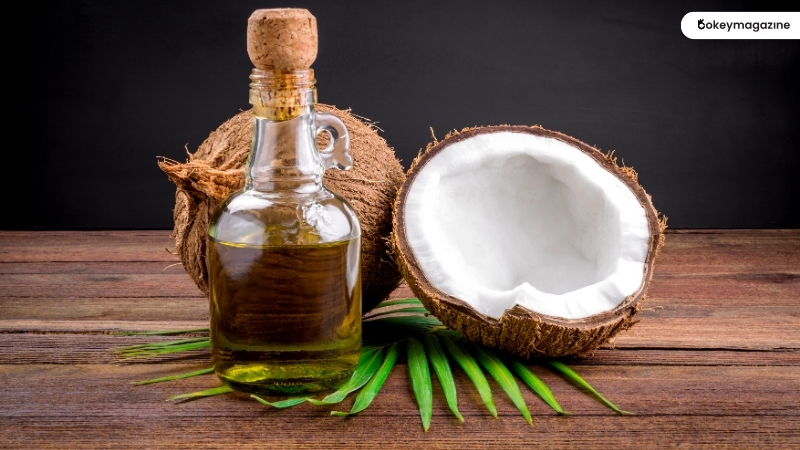
Is It Okay to Use Coconut Oil That Has Gone Bad? Tips for Ensuring Freshness
Coconut oil is probably one of the most widely used staple items in nearly any kitchen for its versatile use and multitudinous health benefits, from cooking and baking to skin care and hair treatment. However, like all oils, coconut oil has a certain sell-by date and may go bad with time.
So, is it okay to use gone-bad coconut oil? And how do you keep your coconut oil fresh for the longest time? This article will answer your question of whether coconut oil goes bad, and how to detect when coconut oil went bad.
All About Coconut Oil
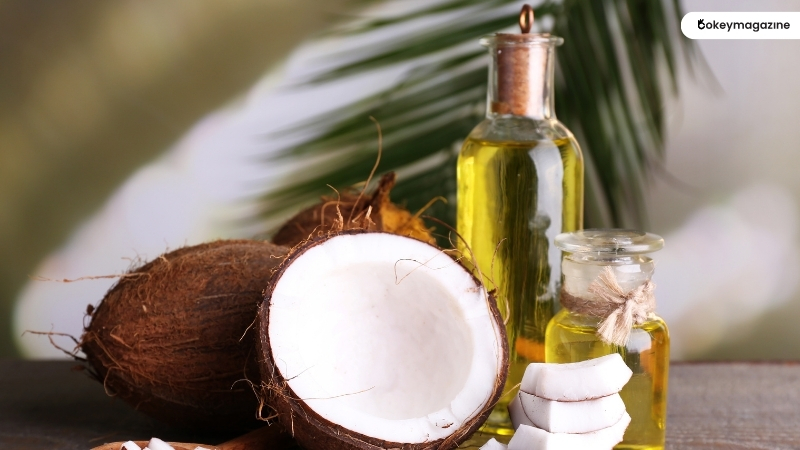
First, the characteristics of spoilage and freshness put into perspective what coconut oil is and its uses. Coconut oil is obtained from mature coconuts and, particularly, from its meat. It is the oil that contains some unique properties.
There are primarily two kinds of coconut oil:
1. Refined Coconut Oil: This is treated coconut oil sold without impurities, or flavor, or smell. It has a higher smoke point, perfect for high heat cooking and frying.
2. Unrefined Coconut Oil-Virgin: It is extracted from fresh coconut meat with minimal processing. It, therefore, retains the flavor and aroma of coconut and finds its best application in recipes where its robust flavor can be showcased.
Shelf Life of Coconut Oil
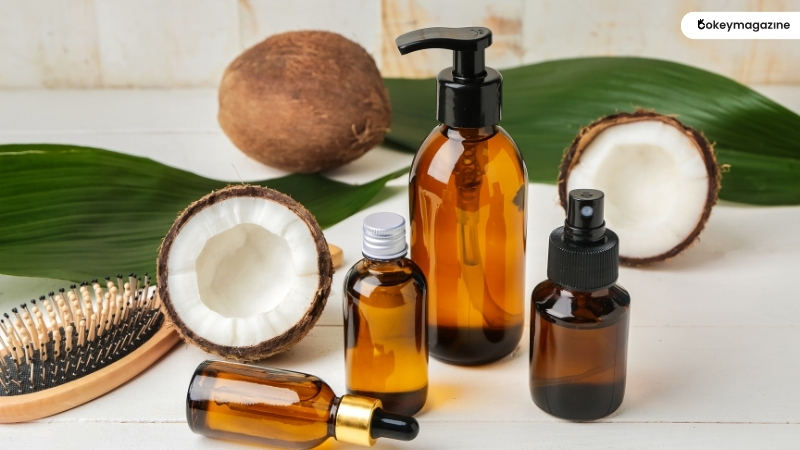
There are many ways to determine the shelf life of coconut oil, whether it’s an open or closed bottle of coconut oil. So, let’s look at understanding whether coconut oil goes bad or not.
1. Unopened Coconut Oil
Refined Coconut Oil: It would be good for a longer shelf life, normally 18-24 months from the production date.
Unrefined Virgin Coconut Oil: This product is usually good for 2 to 3 years from the date of production.
2. Opened Coconut Oil
Once opened, both types of coconut oil generally stay fresh for roughly 6 to 12 months. For the highest quality, it is best used within six months of opening.
How to Tell If Coconut Oil Has Gone Bad
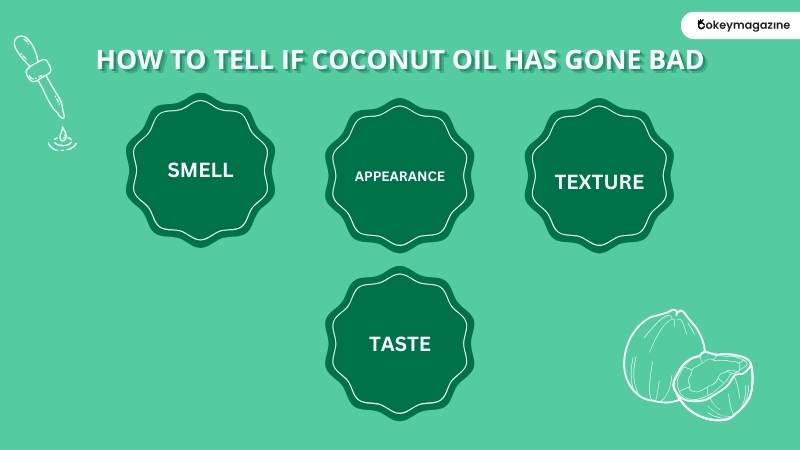
Knowing how to identify spoiled coconut oil can save you from using it beyond when it is safe or usable. Among the main things you could observe, note the following:
1. Smell
Fresh Coconut Oil: It must have a light, pleasant coconut smell. Refined coconut oil has no smell at all.
Rancid Coconut Oil: The odor of the oil is sour, musty, or otherwise unpleasantly different from its usual coconut smell. Rancid oil can produce a chemically or generally repugnant smell different from its normal coconut smell.
2. Appearance
Normal Coconut Oil: It should be clear when melted and white when set. Minor variations can come about with respect to type and manner of processing.
Rancid Coconut Oil: Look for discoloration, cloudiness, or mold. It might be little white or grey fuzzy patches or a film appearing on its surface.
3. Texture
Fresh Coconut Oil: Smoothened out and even in texture.
Bad Coconut Oil: Spoiled coconut oil might take on a grainy texture and/or get some sort of weird lumpy texture. This may indicate it has gone rancid.
4. Taste
Fresh Coconut Oil: mild and flavorful suitable for savory or sweet dishes.
Rancid Coconut Oil: this would be bitter or sour in taste. Immediately, it would have a different flavor than the mild coconut flavor.
Is It Safe to Use Expired Coconut Oil?
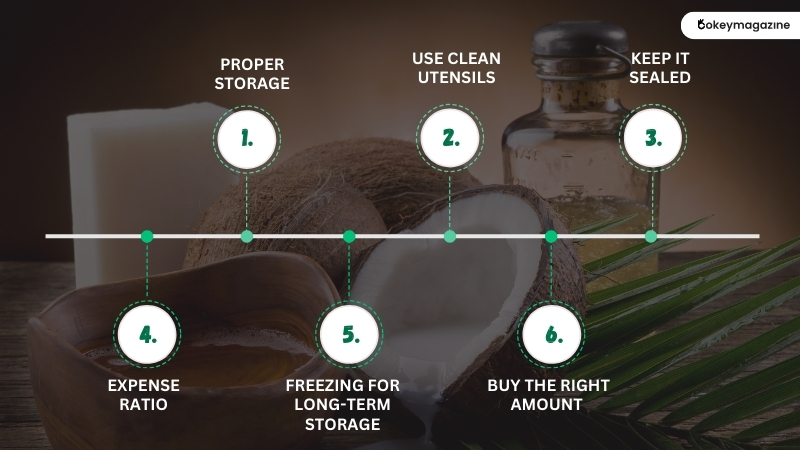
Using expired coconut oil may be risky. Even though there is some sort of inherent antibacterial component in coconut oil that makes it take longer to spoil, compared to other types of oils, it may go rancid. Consuming spoiled coconut oil may result in digestive discomfort or an adverse reaction.
To make your coconut oil last longer and remain fresh, here are some tips to follow:
1. Proper Storage
Cool, Dark Place: Store the coconut oil in a cool, dark place away from direct sunlight and heat. A pantry or cupboard is an ideal place. Excessive heat and light hasten the deteriorating process of the oil.
Keep it Away from Humidity: Store the oil in the least humid section. Moisture invites mold growth and spoilage.
2. Use Clean Utensils
Do not Contaminate: Take out coconut oil with clean and dried utensils; try not to touch it by hand to avoid transferring bacteria and contaminants.
3. Keep It Sealed
Keep it tightly sealed when not in use. Exposing the product to air results in oxidation, thereby accelerating spoilage.
4. Check Expiration Date
Follow Recommendations: In the case of store-bought coconut oil, consider expiration or “use by” dates set by a manufacturer. While it may visually look fine, following these recommendations is one more assurance toward maximum safety and quality.
5. Freezing for Long-Term Storage
Freezer Option: If you have more coconut oil than you can use in a relatively short period, then you should consider freezing. Just place the oil in an airtight container or, for ease, in ice cube trays. Once frozen, place it into a resealable plastic bag or airtight container. Frozen coconut oil will last indefinitely.
6. Buy the Right Amount
Buy smart: Buy it in amounts that suit your needs. This way, you can use it all up before it goes bad.
What to Do If Coconut Oil Goes Bad?
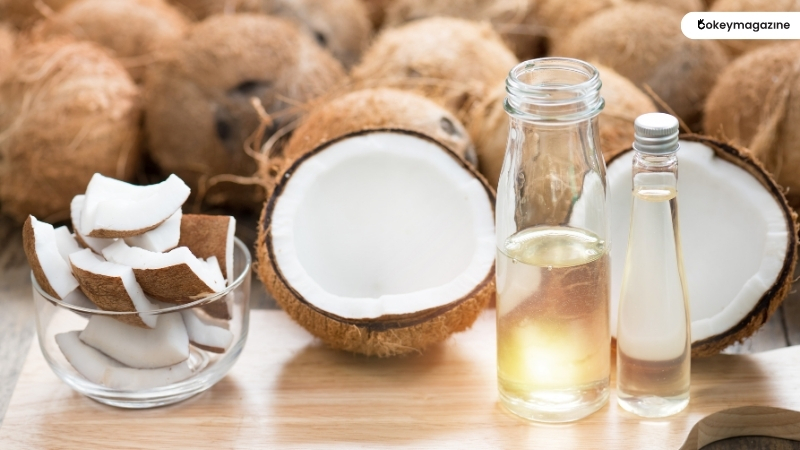
If you find your coconut oil has gone bad, there are only certain things that you can do, here’s what you should do:
1. Discard It
Safety in Discarding: From the above smell, color, and mold points, if any of these signs become apparent, it is always better to discard the oil safely. Ingestion of such spoiled coconut oil may be harmful.
2. Clean the Container
General Cleaning: After the used oil has been trashed, the container is supposed to be cleaned well enough for refilling with fresh coconut oil so that any remains of spoilage may not affect the new batch.
Substitutes for Coconut Oil
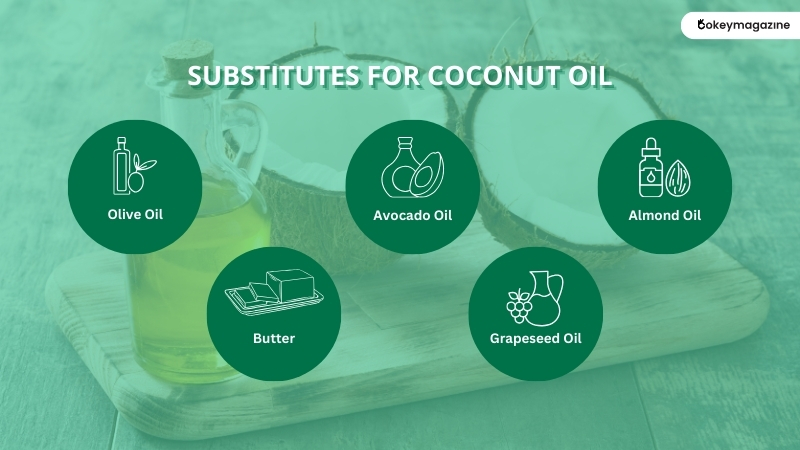
If you want to substitute coconut oil with something else for your recipe or skincare, then here are some alternatives to try:
1. Olive Oil
For baking and cooking, olive oil is a great alternative. Light in flavor yet full of healthful fatty acids.
2. Avocado Oil
Avocado oil is very high in smoke points and good to go with high-heat cooking. It also bears a light taste and some of the same health benefits that coconut oil does.
3. Almond Oil
Almond oil works well in baking and will give a subtle nutty flavor to anything that it is used in. It can also be used in skincare.
4. Butter
Moreover, Butter can be used as a substitute for coconut oil when cooking or baking. Butter tastes great and is full of flavor, though nutritionally, it differs from coconut oil.
5. Grapeseed Oil
Grapeseed oil is light in flavor and has a high smoke point; hence, it is helpful for so many cooking uses.
Wrapping Up!
Coconut oil is multi-purpose and highly useful concerning food and personal care applications. While it may have a rather longer shelf life, knowing whether it is fresh and how correctly to store it is equally important for safety and effectiveness.
Now if you think this article was informative and useful for your knowledge of whether coconut oil go bad, then let us know in the comment section.
Suggested Topics…


















Post Your Comment